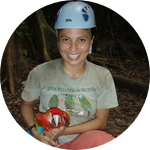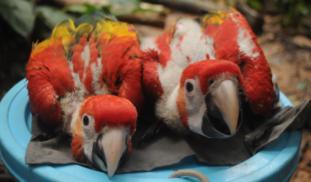Please wait...
About This Project
Scarlet Macaw populations are declining due to illegal trade and habitat loss 1, 2. Unfortunately, macaws lay 2-4 eggs, but fledge only one/two chicks, letting the others starve to death. Last year we used chick fostering to save 11 chicks from starvation. This year we will refine our techniques to make them better and simpler, to encourage other parrot conservation projects to use these techniques to aid the recovery of endangered species of macaws & parrots throughout the Americas and beyond.
More Lab Notes From This Project

Browse Other Projects on Experiment
Related Projects
Out for blood: Hemoparasites in white-tailed deer from the Shenandoah Valley in Northern Virginia
Our research question centers about the prevalence and diversity of hemoparasites that infect ungulate poplulations...
Using eDNA to examine protected California species in streams at Hastings Reserve
Hastings Reserve is home to three streams that provide critical habitat for sensitive native species. Through...
How do polar bears stay healthy on the world's worst diet?
Polar bears survive almost entirely on seal fat. Yet unlike humans who eat high-fat diets, polar bears never...





